TU staff, student leaders share MLK's impact on their lives
From students in leadership positions to TU's senior leadership staff members, Martin Luther King Jr. Day provides an opportunity to reflect upon his lasting impact.
January 20, 2019
Among the many quotes of Martin Luther King Jr. that still resonate more than 50 years after his death is one that states, “Everybody can be great because everybody can serve.”
At Towson University, leadership opportunities are available for anyone with an interest, a vision or a desire to serve.
In the days leading up to Martin Luther King, Jr. Day, we checked in with a number of those serving Towson University students to ask them their recollections of Dr. King’s leadership, his lasting legacy and how they may try to emulate him in their own lives.
Here’s a glimpse at some of what they had to say:
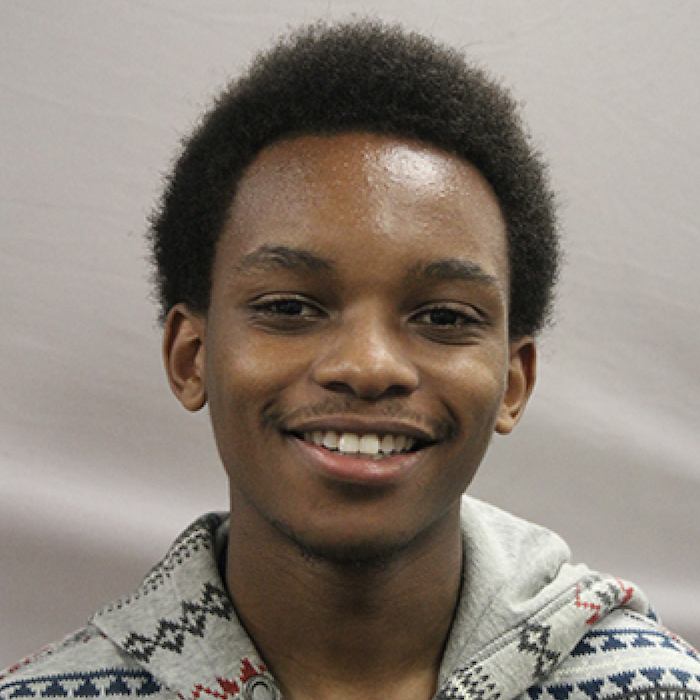
Karuga Koinange '19
Editor, The Towerlight
It’s hard to put MLK’s impact into words. I always admired his fearlessness when it came to speaking his mind. He stood up for what he believed in, letting his confidence in his beliefs overshadow any fear of repercussions. Dr. King will always be thought of as a reminder to speak my mind, despite overwhelming odds.
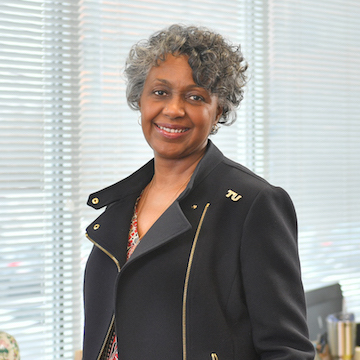
Dr. Leah Cox
Vice President, Inclusion and Institutional Equity
A few years ago I taught a course titled “Race, Revolution, and the Civil Rights Movement.” This was a first-year seminar that was designed to engage 15 first-year students in discussions around a central topic. It goes without saying that Martin Luther King, Jr’s participation in the movement was paramount. To understand the movement, the class needed to read and research life in America during the civil rights era and be able to speak about the major issues and inequities during this time period. One of the ways that I found it helpful to generate an understanding of this pivotal moment was to require the class to read Dr. Kings letter from the Birmingham jail.
The one passage that always sparked deep and heartfelt conversations was:
“Injustice anywhere is a threat to justice everywhere. We are caught in an inescapable network of mutuality, tied in a single garment of destiny. Whatever affects one directly, affects all indirectly.” ― Martin Luther King Jr., Letter from the Birmingham Jail
A majority of the students in the class were white and had not thought about injustices or the ways in which injustices threatened others. I vividly remember the wonderful debate this part of Dr. King’s letter invoked. The circumstances of Dr. King’s imprisonment, who he was writing to, and the message he sought to impart was critical. For these students, this was a part of our history that they had never considered. It was the history of all of us.
I never participated in such a heartfelt conversation with a group of first-year students about the consequences of inequality. These are consequences that I had grown up with as a child and am now as an adult am even more aware of and charged with breaking down.
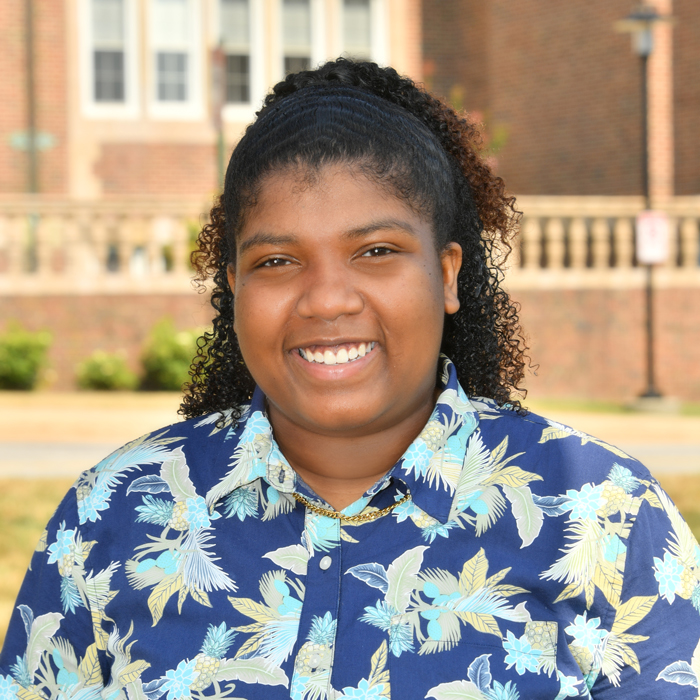
Rushell Ford
President, Towson University Student Government Association
Dr. King was one of the key icons who started my interested in Civil Rights. From early on, my parents made sure we knew American history through the lens of African American leaders and writers. Because of this, it has made me want to create my own legacy through my vision of what civil rights looks like.
We often talk about Dr. King’s dream in so much light, I think some of the messages in it are overlooked for a broader, more universal message. Dr. King dreamt of the United States being absent of racism, discrimination, and injustices towards African Americans. We should apply this today by urging people in power to create better laws that will weed out the racism our country is still experiencing today. We should also educate others to become more aware of these issues so that we can bring more light to them, rather than sweep them under the rug.
Aside from this, getting on the ground and doing acts of service in underprivileged communities will also apply the beliefs envisioned by Dr. King.
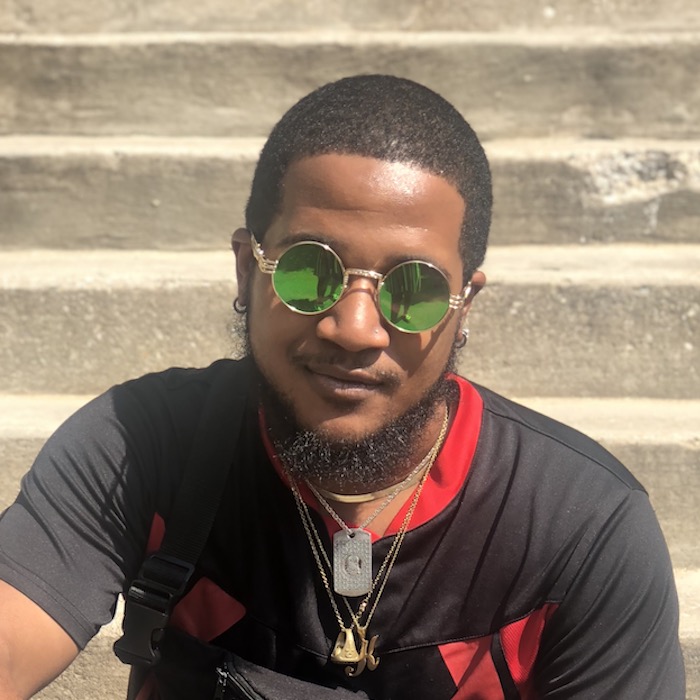
Kendric Carroll
President, Towson University Black Student Union
Students can honor Dr. King’s legacy by researching and learning about the impact that he made on the lives of black individuals. We keep his ideals alive through positive communication and leadership. Dr. King is proof that our words are valuable and our lives are meaningful.
I feel that if we stop and reflect on Dr. King and his words, we can see how he stepped out on faith and knowledge because he believed in the change. He used the most powerful weapon of all: his voice. He showed the importance of loving yourself and your neighbors enough to use that nonviolent approach to wake society up to prevalent issues of African Americans.
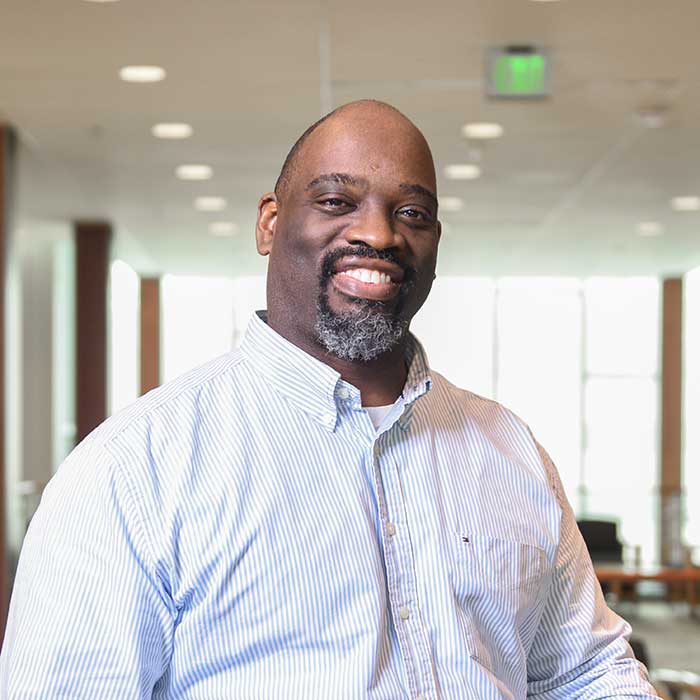
Donn Worgs
Professor, Political Science, and Director, African & African-American Studies minor
I had a family connection to him. My father’s first cousin was a labor leader in New York, and he was very supportive of King. There was always a family story, but I didn’t appreciate it until my cousin passed in the mid-‘90s and all these civil rights folks came out, and they talked about what that relationships was like. It gave me some perspective on King — my cousin as well — and the labor aspect: supporting labor and having relationships with unions. The economic aspect of his vision that we see in later years, he was already thinking about that for a while, earlier than we think. He died in Memphis supporting the sanitation workers, but he was interested in economic justice a lot earlier than that.
—
Have your own thoughts about how you use Dr. King’s words in action or how you emulate his leadership at TU? Let us know. Share your thoughts on Twitter or Instagram with #TUproud.
This story is one of several related to President Kim Schatzel’s priorities for Towson University: Culture of Philanthropy.